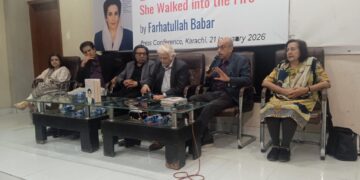By: Ali Asghar Saifuddin Lamu wala.
Karachi : Chat GPT has stormed the world of academia, captivating students with its promise of easily accessible information and AI-driven support for writing assignments, research, and study materials. While this tool offers quick responses and an immense repository of knowledge, it raises concerns about over-reliance and declining writing quality. I recently visited a website that publishes student-written articles. Unfortunately, many of these submissions lacked depth, clarity, and accuracy in grammar, punctuation, and syntax. This platform had seemingly become a dump yard for below-par articles generated through ChatGPT, where trivial subjects were discussed with little to no substantive insight. It reflects how misuse of AI can lead to a decrease in academic standards rather than an enhancement. Moreover, while ChatGPT can aid in learning by offering instant answers, many discussions generated by the tool often remain generic, lacking the nuanced analysis and original thought
that educators seek. The overuse of ChatGPT, without critical oversight, may result in students bypassing the essential process of developing their own ideas, reducing their academic work to mere AI-driven outputs. This trend raises questions: is ChatGPT a boon, facilitating learning and accessibility, or a bane, leading to intellectual stagnation? Ultimately, the tool’s role in academia will depend on how students and institutions balance its utility with the value of critical thinking and personal effort.



















